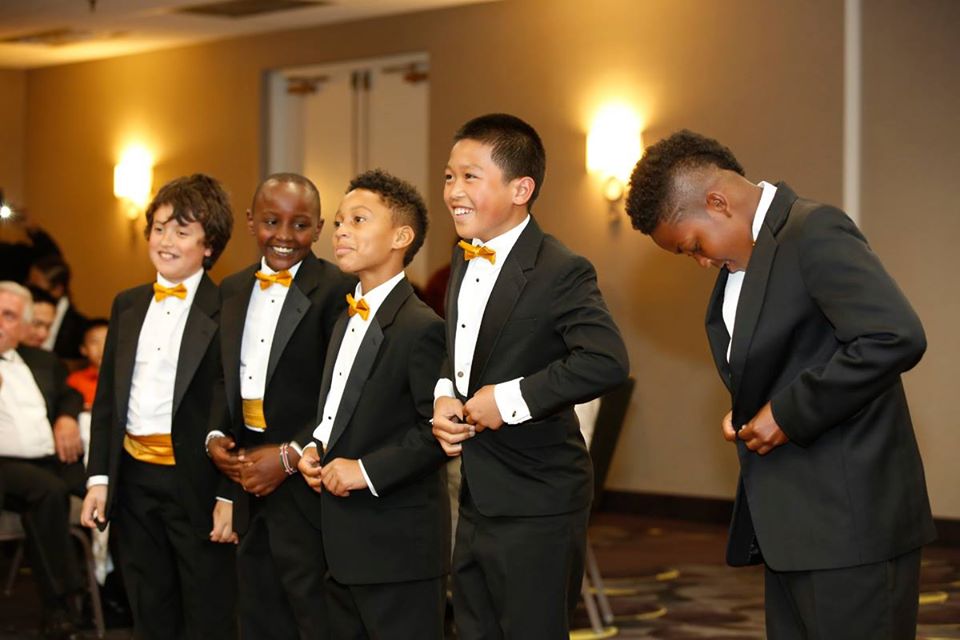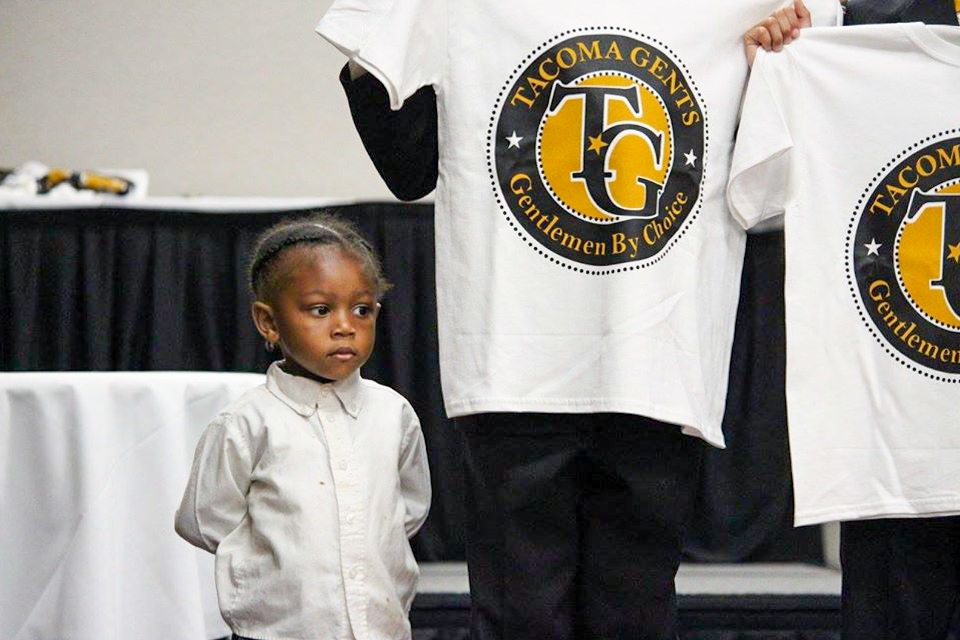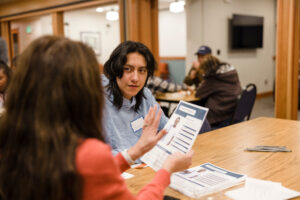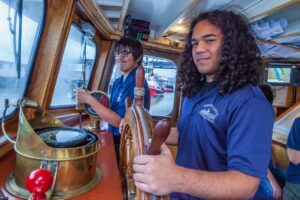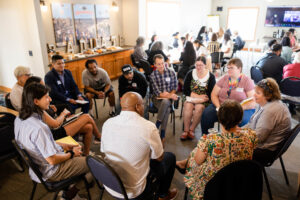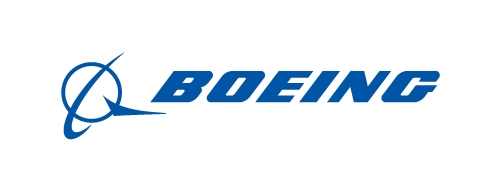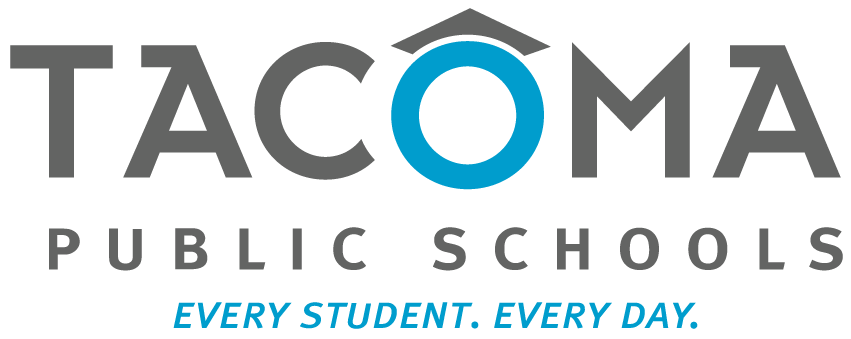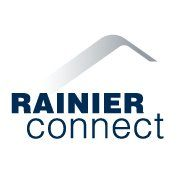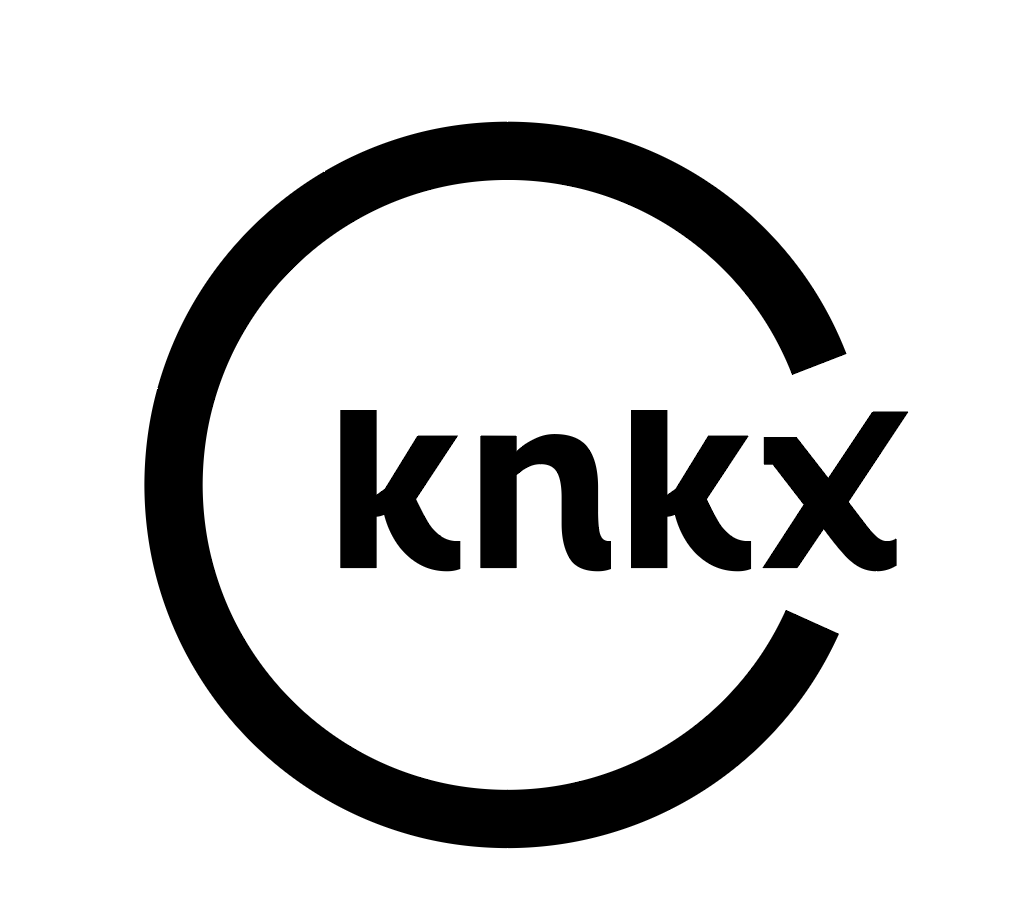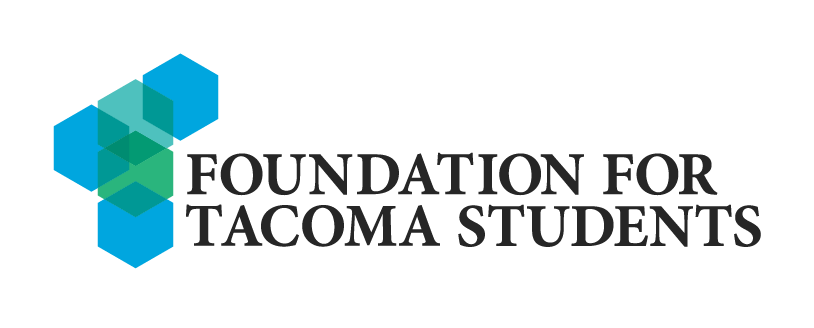In a city where most of our residents are White, but the majority of our student population is Black and Brown, investing in mentorship that reflects the identities of Tacoma students has become a leading conversation for Graduate Tacoma community partners.
Antonio McLemore is just one of the many leaders in Tacoma engaging youth through mentorship. As the Male Involvement Program (MIP) Manager at the Tacoma Urban League, he is approaching this work from a racial equity and gender lens to support the unique needs of Black and Brown boys.
“The only level of success that our children have seen that look like them is posters of athletes and entertainers. That’s the only type of success that society has allowed them to see,” says Antonio. “Even when you have an African American who is successful, oftentimes they don’t live in the communities they were raised.”
Black males are disproportionately impacted by negative stereotypes. Stereotyping can cause anxiousness, fear, and distress to the targeted group, which can negatively affect academic performance – even when the targeted group does not believe the stereotypes assigned to them.
The Male Involvement Program offers mentoring from men of color to help provide a safe and supportive community for boys of color who attend elementary and middle school at Lister, First Creek, Gray, and Stewart. The partnership between the Tacoma Urban League and Tacoma Public Schools provides students with culturally-anchored activities and discussions that help foster emotional, personal, and academic growth.
Every time he meets a new student, Antonio considers how young people are often at the mercy of their environment and the adults in their lives.
“It was extremely tough for me [as a father] to raise two boys without even having a model myself,” he explains.
Antonio highlights the importance of young people having role models that validate their racial identity, emphasizing that educators must lead with seeking to understand the unique barriers preventing minoritized and marginalized students from quality learning and growth.
“There are conversations we must be willing to have that go beyond ourselves and make us uncomfortable. We must learn not just to implement information, but to also connect with the individuals that are in the [class] room,” says Antonio.

At Birney Elementary, the Tacoma Gents after school program, similarly, equips students with the tools to succeed in Leadership, Image, Financial management, and Etiquette (L.I.F.E). Brandon Ervin, College and Career Readiness Counselor at Tacoma Public Schools mentors the young Gents to build a positive self-image.
“The goal is to ensure that these kids have the tools they need to navigate the world as they become older men,” says Brandon. “Life experiences hold a lot of weight, and if you can’t understand the journey these kids have been on, it’s going to be hard for you to engage with them.”
Shared life experiences help promote closeness and trust in relationships. This mutual understanding provides students with a knowledgeable individual to guide them at critical points in their educational and personal development.
“There were many cases in my Tacoma public education journey where I was a throwaway kid,” says Brandon. “If it wasn’t for mentors, I know exactly where I would be today because of the projection that was placed on Black boys during that time. I quickly realized that to ensure that it doesn’t happen to anyone else, I’ve got to insert myself into the conversations and the work.”
Tacoma Gents and MIP offer Expanded Learning Opportunities during and after school through the Tacoma Whole Child initiative. The initiative employs a systems-building approach using data-driven problem solving to maximize social, emotional, and academic growth for youth.
These two partnerships with Tacoma Public Schools epitomize the spirit of collective action that propels the Graduate Tacoma community-wide movement. Likewise, by connecting organizations, businesses, institutions, and people, as a movement we can ensure that youth have support and access to opportunities when and where they need it.
Outside of the school setting, community leaders like Eric Upchurch, owner of Goodfellas253 Barbershop, step in to ensure youth of color have access to mentors and resources that promote social-emotional wellness and increase the visibility and representation of Black role models.
“Young people need to see successful people who look like them, ” says Eric. “When you look at the people making decisions or at a voting pamphlet, you don’t really see a lot of people who look like me.”
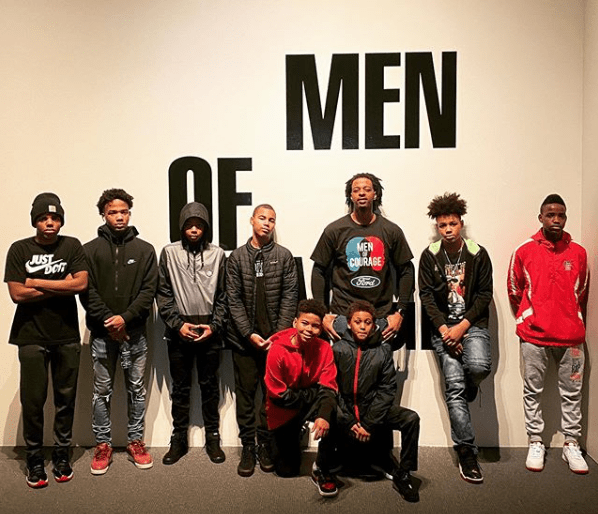
Eric is a finalist in the Men of Courage Barbershop Challenge, an initiative aimed at furthering the positive narrative and imagery around Black men. The national challenge launched locally in Tacoma in partnership with the Washington State History Museum and the City of Tacoma – providing finalists with resources to implement community programming.
“My hope is to inspire other businesses to give back to their community because if [young people] don’t know what’s out there, then they don’t know how to pursue it,” says Eric.
In addition to community programming, Eric is in the process of turning a room in his barbershop into a computer lab with 3-D printers for youth to explore technology they wouldn’t otherwise have access to.
“I believe in the power of giving back,” says Eric. “I make sure that everything I do is positive. It’s what’s needed.”
These examples of the community-wide movement in action are rooted in shared responsibility and leadership through collaboration. This collective impact is critical if we are to serve all students in our community.
“There is no singular way to support a kid,” says Brandon. “Serving kids means holding teachers, administrators, community members, and organizations accountable. In order to make an impact, you have to be the impact.”
